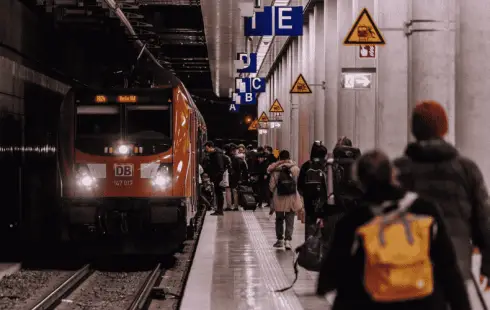
Fully Funded Scholarship Opportunity at the Bavarian International School for 2026-27
Section: News
 The Munich city council has voted to extend the alcohol ban at the main train station for another four years, citing concerns over disorder and crime. The decision, made during a district administration committee meeting on Tuesday, comes following a proposal by Hanna Sammüller-Gradl, the leader of the Green Party in the KVR.
The Munich city council has voted to extend the alcohol ban at the main train station for another four years, citing concerns over disorder and crime. The decision, made during a district administration committee meeting on Tuesday, comes following a proposal by Hanna Sammüller-Gradl, the leader of the Green Party in the KVR.
The police view the alcohol ban as a crucial tool in combating disorder and the resultant crimes. They have even advocated for the extension of the ban to Karl-Stützel-Platz, the Old Botanical Garden, and the area known as "Norkauer Platz."
While the CSU and Free Voters also supported the extension of the ban to these zones, ÖDP leader Tobias Ruff was the sole voice in favor of extending it further to include a cannabis ban in areas covered by the alcohol ban. However, this proposal did not garner enough support.
Notably, some politicians, including Marie Burneleit from the satirical party "The Party" and Richard Progl from the Bavaria Party, opposed the alcohol ban. Burneleit criticized the lack of consultation with the individuals affected by the ban, particularly those around the main train station. Progl highlighted discrepancies in law enforcement, noting that certain groups, such as football fans and Oktoberfest visitors, are not subject to the same scrutiny as others based on appearance.
Welfare associations have also expressed reservations about the alcohol ban, fearing that it may lead to repression and stigma against those who consume alcohol, according to a draft resolution from the KVR.
Mayor Dieter Reiter (SPD) has expressed concern over the increasing crime rates around the main train station and visible signs of neglect in the area, exacerbated by vacancies and construction sites. He has convened a task force to address these issues promptly and effectively, emphasizing the need for improved lighting and vegetation management in public spaces.
The city administration has already established a round table to address concerns related to the main station, which involves social organizations in a more holistic approach to problem-solving.
While Munich remains one of the safest major cities in Germany, there are growing concerns about youth violence. Police chief Thomas Hampel presented crime statistics to the KVR committee, highlighting an increase in young suspects involved in serious offenses. The focus of youth violence appears to be in areas like Riem and the Pasinger train station, where the police have implemented measures to prevent escalation.
As Munich grapples with these challenges, there is a growing recognition of the need for comprehensive strategies that address the root causes of disorder and crime while ensuring the safety and well-being of all residents.

Section: News

Section: Arts

Section: Travel

Section: Arts

Section: Arts

Section: Arts

Section: Fashion

Section: Politics

Section: Fashion

Section: News
Both private Health Insurance in Germany and public insurance, is often complicated to navigate, not to mention expensive. As an expat, you are required to navigate this landscape within weeks of arriving, so check our FAQ on PKV. For our guide on resources and access to agents who can give you a competitive quote, try our PKV Cost comparison tool.
Germany is famous for its medical expertise and extensive number of hospitals and clinics. See this comprehensive directory of hospitals and clinics across the country, complete with links to their websites, addresses, contact info, and specializations/services.
Join us at the Kunstraum in der Au for the exhibition titled ,,Ereignis: Erzählung" by Christoph Scheuerecker, focusing on the captivating world of bees. This exhibition invites visitors to explore the intricate relationship between bees and their environment through various artistic expressions,...



No comments yet. Be the first to comment!